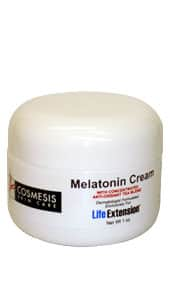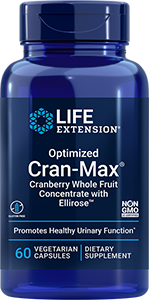 | April 9, 2010 | Intentional weight loss helps, not harms, seniors | | The outcome of a study scheduled to appear in the print issue of the Journal of Gerontology: Medical Sciences contradicts the concerns raised by previous studies that deliberate weight loss among older individuals could increase the risk of death. Weight reduction aids in lowering high blood pressure, elevated cholesterol and high fasting glucose levels, all of which can increase with aging, yet some health care practitioners have hesitated recommending weight loss to older individuals due to findings that associated weight reduction with increased mortality. However, the studies upon which these conclusions were based did not address whether weight loss was intentional or due to underlying disease. M. Kyla Shea, PhD and her associates at Wake Forest University Baptist Medical Center analyzed data from 318 arthritic men and women over the age of 60 who participated in a randomized trial that evaluated the effects of dieting and/or exercise on physical function. Known cardiovascular disease, severe hypertension, chronic obstructive pulmonary disease, and other conditions that could limit participation in regular exercise were criteria for exclusion. The 159 subjects in the weight loss diet and diet plus exercise intervention groups lost an average of 10.5 pounds over an 18.5 month period, while the exercise only group and the healthy lifestyle control participants lost an average of 3.1 pounds. The current study analyzed deaths that occurred up to 8 years after the trial’s conclusion. Dr Shea and colleagues discovered a correlation between weight loss and increased survival. Fifteen deaths occurred among those assigned to weight loss diet interventions, compared with 30 in the remainder of the participants. "It was an unusually strong and surprising finding," stated Dr Shea, who is a research associate in Wake Forest’s Department of Internal Medicine, Section on Gerontology and Geriatric Medicine. "Overall, we found that there were far fewer deaths – half the number – in the group of participants that lost weight compared to the group that did not." "These were the seniors living out in the community, getting around and doing their daily tasks just like your neighbor," noted coauthor Stephen B. Kritchevsky, PhD, who is the director of the J. Paul Sticht Center on Aging. "All were overweight and dealing with the signs of aging when the study started." "For years, the medical community has relied on multiple epidemiological studies that suggested that older people who lost weight were more likely to die," he remarked. "Weight loss in old folks is just understood to be a bad prognostic sign. The data that people have been using has been unable to separate the cause and effect of the weight loss, however, and our study suggests that the weight loss they've been studying may be the result of other health problems and not of intentional weight loss." "This study puts to rest a lot of unfounded concerns about how to address the epidemic of obesity among our older adults," he concluded. | |  |
| The risk of death from all causes, including cardiovascular disease and cancer, increases with rising obesity in both men and women in all age groups, and the risk associated with a high BMI is greater for whites than for blacks (Calle et al 1999). Obesity increases the risk of developing metabolic syndrome and coronary heart disease (Shirai 2004); type 2 diabetes (Mensah et al 2004); osteoarthritis of major load-bearing joints, such as the knee (Felson et al 1997); hypertension (high blood pressure); sleep apnea (periods of suspended breathing during sleep) (Wolk et al 2003); and gall bladder disease (Petroni 2000). The International Agency for Research on Cancer has classified obesity as a critical causal risk factor for cancers of the colon, breast (postmenopausal women), endometrium, kidney (renal cell), and esophagus (adenocarcinoma) (Calle et al 2004). A study reported in the Journal of the American Medical Association suggests that obesity causes 111,909 deaths annually (Flegal et al 2005), while epidemiological evidence shows that a lower body weight is associated with lower mortality risk (Stevens 2000). In the well-known Framingham Heart Study, risk of death increased by 1 percent for each extra pound (0.45 kg) of weight between age 30 and 42 and increased by 2 percent between age 50 and 62 (Solomon et al 1997; Kopelman 2000). In order to prevail against your body's innate propensity to store fat, you must restore fat-reducing hormones such as DHEA and testosterone lost to aging, and suppress hormones such as insulin and estrogen, which promote body fat. You'll want to enhance insulin sensitivity and maintain a youthful metabolic rate so that your cells are able to release stored fat. |
|  | Melatonin Cream   | | As the body’s largest organ, your skin suffers most visibly from the stresses of modern living and the ravages of time. The creases, furrows, and dark circles that result can add years to your appearance. Melatonin Cream offers a simple way to counter these issues and naturally restore your intrinsic beauty. Just apply to a clean, dry area anywhere on the body and rub in well. In addition to melatonin, it includes: - MSM (methylsulfonylmethane): A unique, natural, efficient source of the sulfur that is used by many of the body’s molecules. MSM easily penetrates the skin’s cell membranes.
- Vitamin C and E: Two of nature’s most powerful antioxidants to help rejuvenate aging skin.
- White, green, black, and red tea extracts. High-grade compounds to help offset visible aging effects associated with oxidative stress.
| | |   | | A wealth of published studies indicates that cranberry polyphenols may help to support a healthy urinary tract. Of particular importance is the flavonoid content of the cranberry, including anthocyanins and proanthocyanidins. These natural compounds exert powerful antioxidant effects that can reduce oxidative stress. Recent clinical data suggest that the proanthocyanidins found only in cranberries also possess unique molecular features that specifically promote urinary system health. In a significant advance, Life Extension® has identified a unique compound available overseas but little-known in the United States that provides a synergistic complement to the whole cranberry's phytonutrient profile. UTIRose™ is derived from Hibiscus sabdariffa, a species native to Europe, Asia, and Africa. Scientific analysis has shown that this species' flower and calyx (the green floral envelope surrounding the blossom) are rich in active polyphenols, including flavonoids, sambubiosides, and proanthocyanidins. Of special importance is a flavonoid found in Hibiscus sabdariffa called gossypetin (3,5,7,8,3,'4'-hexahydroxy flavone), which has been shown to provide support for urinary system health. | | | |  | | Life Extension Update | | What's Hot | | Life Extension Magazine® | |

